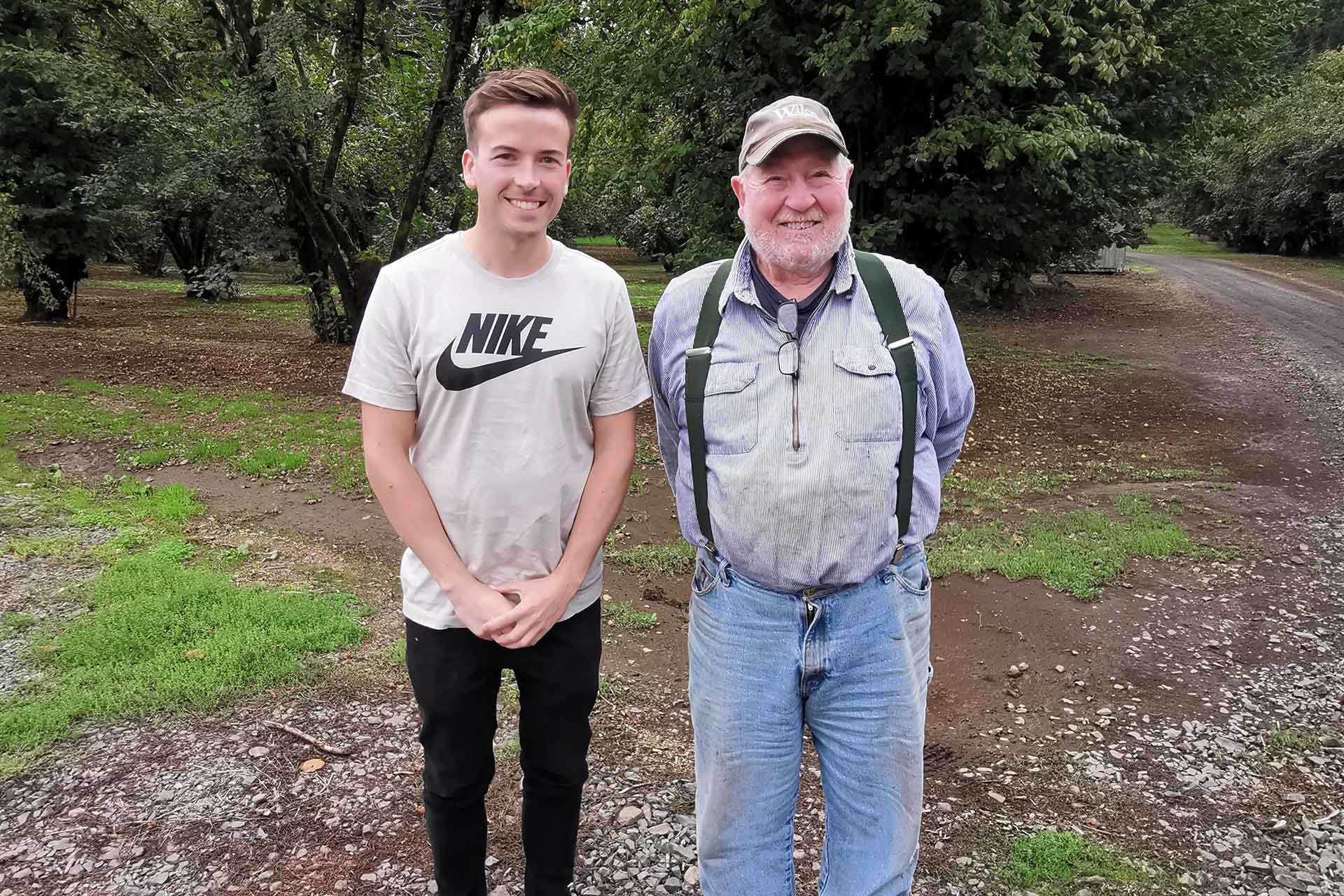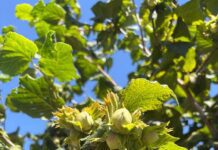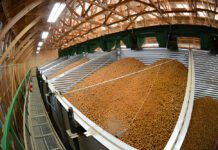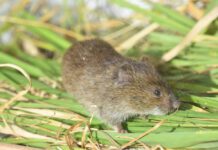Global hazelnut production is amid an era of change, expansion and discovery, and one young Briton is traveling the world to chronicle it. Tom Cannon was chosen as a Winston Churchill Memorial Trust fellow, a rare honor that has afforded him the opportunity to travel the world and compare hazelnut production strategies.
His worldwide journey brought him to Oregon in September to learn how American farmers manage their orchards.
Third Generation Hazelnut Grower
Cannon is a third-generation hazelnut—known as a cobnut in the United Kingdom (UK)—farmer in Kent, a county on the southeast coast of Great Britain that is home to most of the country’s hazelnut industry. The family manages 100 acres of hazelnuts, along with a diversified berry enterprise; Cannon recently launched an online store for the family farm that enables them to fill and ship custom orders direct to consumers.
“Our cobnut industry has a long history, and I am keen to make sure the sector grows into the future. As in the USA, nut consumption is becoming more popular in Great Britain, so a domestic industry is important,” Cannon said. “In addition, my grandfather set up the Kent Cobnut Association (KCA) and helping to contribute to that and the entire sector is a privilege. I am on the KCA committee, so I am keen to bring back ideas and best practice.”
Hazelnut Growers Around the World
Cannon was very keen to see American hazelnut farms, due to the level of innovation in the United States.
“The mutually beneficial partnership with Oregon State University is world-leading and very forward thinking. Although we eat most of our nuts green, we do want to develop more value-added products, and I think there is a lot of crossover in terms of developed consumer markets wanting to buy more nuts. I also feel it is sensible to understand the impact of pests and diseases that we don’t currently have,” Cannon says.
In addition to his two weeks in the United States, he also trekked across Turkey and China learning about their hazelnut industries.
“I have seen so much during the trip, from traditional hill farming in Turkey to new significant plantings in China. I have also seen numerous processing operations and a real range of hazelnut products. Consumption is different in all three countries. Hazelnut products are most established in Turkey; the sheer range and availability is impressive, while in China the luxury nature of hazelnuts seems very apparent,” says Cannon.
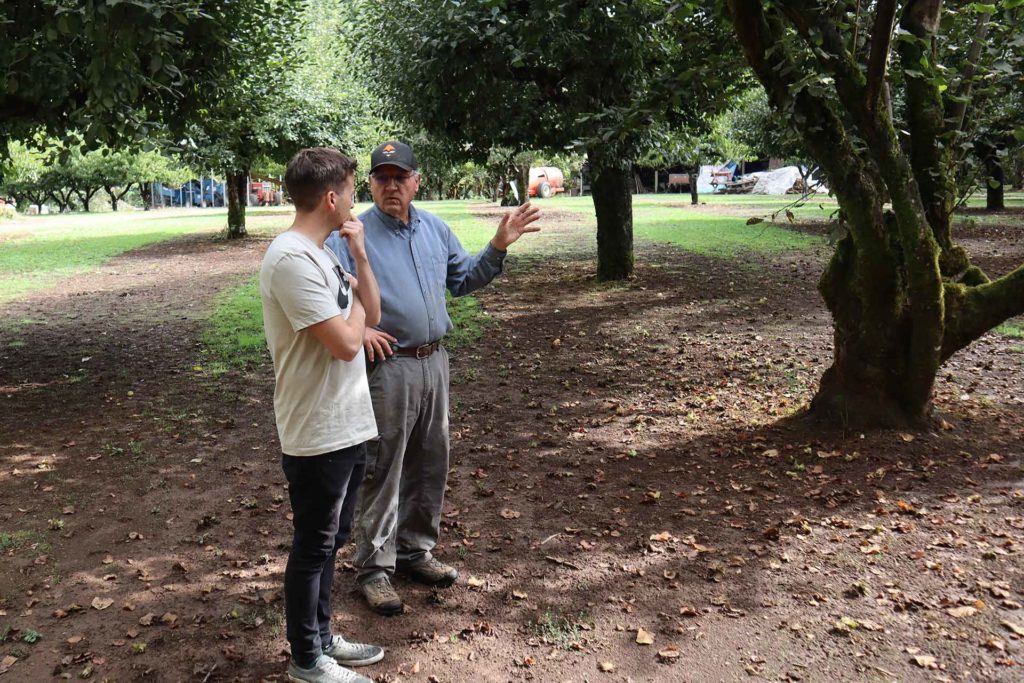
U.S. Hazelnut Production
While in America, Cannon met with industry leaders at all stages. He visited eight farm families, each one with variations on management practices. Trees ranged from new-growth orchards yet to produce any nuts, all the way up to some of Oregon’s oldest trees in the south Willamette Valley. Cannon’s largest areas of focus were irrigation, fertilizer practices and harvesting methods.
“From harvesting to processing and product development, I was particularly keen to see current practices and how it differs from our approach. For instance, we do not currently irrigate in Kent, and the rise of this as a practice in Oregon is particularly interesting. This could make a big difference in Kent, because much like Oregon, we are seeing drier summers.
After visiting the orchards, Cannon explored receiving stations and processing facilities—both of which also vary greatly from the UK methods.
His trip concluded with field visits and discussion with Oregon State University researchers in Corvallis and at the North Willamette Research and Extension Center. From the latest on weed management and irrigation to understanding how the new varieties were created and their unique characteristics, the research team shared their findings on all areas of orchard science.
Cannon returned to the UK after his visits in America; he will wrap up the entire project with a trip to Australia and New Zealand next March. Upon completion, Cannon will compile a report and presentation on his findings.
The Winston Churchill Memorial Trust was established following the passing of the former British prime minister. Contributions have been made to the fund throughout the years, and the program now sends 150 Britons on international missions, annually.







